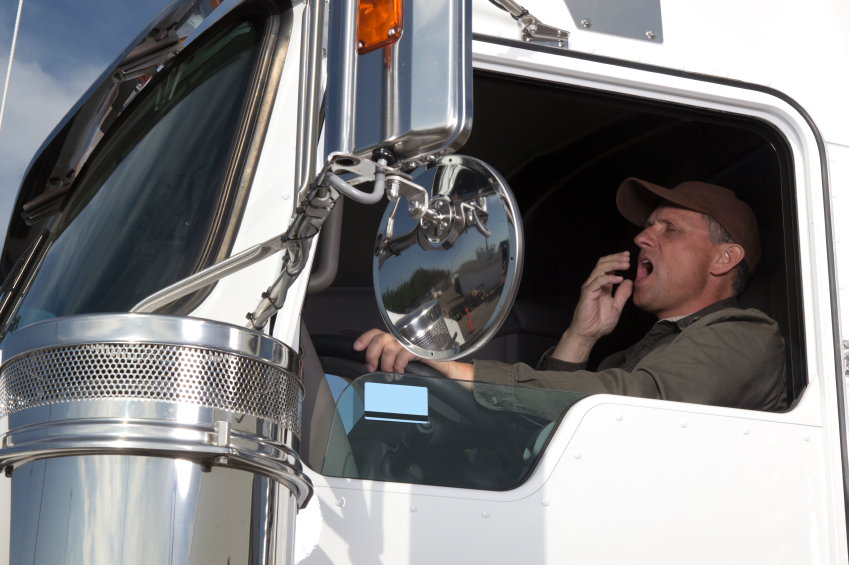Last year 5,000 people in the United States died in a car accident resulting from drowsy driving. What does this have to do with the logistics industry? According to the National Sleep Association 60% of all drivers (including truck drivers), are sleepy and tired when driving. This is important to address because the Logistics Industry is crucially dependent on truck drivers. Furthermore, truck drivers who have OSA and do not get treatment are up to five times more likely to get into a crash. Ultimately hurt the bottom line for shippers, carriers, and most importantly the drivers themselves. Additionally, this potentially is a safety and health risk to which the tired truck drivers are exposed. Drowsy driving is typically a result of not enough restful sleep, having sleep apnea often causes this. This is why the Federal Government has made new regulations on testing drivers for sleep apnea.
What Is Sleep Apnea?
To understand why this is so important to identify in all people especially tradespeople operating heavy machinery like truck drivers, it is important to understand what sleep apnea is. Obstructive sleep apnea (OSA) is a common and severe sleep disorder that causes you to stop breathing during sleep. Stopping breathing even slightly is detrimental to the health of truck drivers because there is less oxygen going to the brain resulting in overall fatigue, mental fuzziness, and uncontrollably falling asleep during the day.
Assessing whether a person has sleep apnea, there are a few common signs and indicators.
- Loud snoring (caused by the tissue in the back of the throat collapsing)
- Waking up in the middle of the night.
- Drowsy during wake hours.
- Silent pauses in breathing.
- Difficulty concentrating.
- Memory loss.
- Feeling irritable.
- Morning headaches (due to lack of oxygen to the body and brain)
 What does this mean for commercial truck drivers?
What does this mean for commercial truck drivers?
Federal Motor Carrier Safety Administration, FMSCA, does not require drivers to be cleared by doctors of OSA, but do highly recommend it. The FMSCA highly recommends those drivers who have a BMI over 35 (those people with body mass indexes considered obese). However, each state within the United States does set their levels of regulations regarding testing and minimum treatments to sleep apnea. The biggest issue with being tested is the common procedure associated with it. Typically patients are required to spend one full night in a sleep lab for observation. More recently, health companies developed home sleep tests. Though the tests need a week of observation and data recording, it is in the comfort of your home and bed making it a more viable option. Additionally, most insurances do pay ultimately reimburse the patient for the sleep apnea device, called CPAP. It is expected that the FMSCA will soon require screening and treatment for those drivers with OSA. At EastCoast Transport, we agree with the concern of having healthy drivers and promote our carriers to be concerned about the driving conditions and health conditions of their labor force. If you would like to know more about our services as a third party logistics company, please contact us today.

